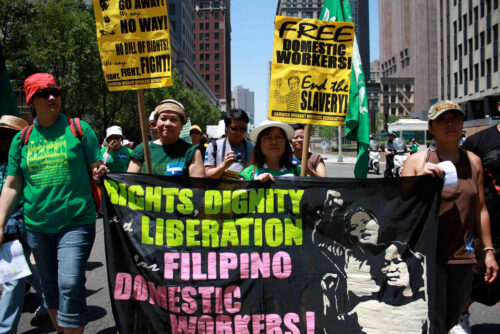Over the course of my research, I have always felt that domestic work should be considered in both its paid and unpaid forms, because these two modes exist in changing, but related, ways over time.
My initial interest was in women’s unpaid housework and how American society values that type of work. 1 I found that people determined the status of being a housewife depending on their own social class. Working class women tended to value the role, because having the ability to be a full-time housewife would be a luxury in their families, one that they could not afford. Meanwhile, middle class women tended to devalue the status of housewives, probably because their education allowed them to have a higher status with paid jobs as an option. Undoubtedly, this difference in standpoint affects how middle class women view (and undervalue) the working class women they sometimes hire to work in their homes.
From a white and middle class point of view, “liberation” from unpaid housework—either by reducing the amount of work or passing it on to others—is a desirable goal. Early in the twentieth century, some scholars thought that household technology, like technologies used in industrial work, would make housework easier and reduce the need for paid domestic workers. By the end of the century it was clear that while technology (especially hot and cold water plumbing, sewage, and electricity) had lightened the drudgery of household tasks, it had not “liberated” women from housework. Instead, technologies had allowed middle class women to take over the work previously done by live-in domestic workers or by other family members, thus increasing housewives’ total workload as they lost assistance and, simultaneously, as the standards of cleanliness increased, raising expectations as to the amount of work that should be accomplished. 2 Thus, the number of hours wives spent on housework did not significantly decrease in relation to the increase in household technology. And, since the total number of unpaid housework hours did not decline, the demand remained for paid domestic workers to take on some of these tasks.
- Christine E. Bose and Peter H. Rossi, “Gender and Jobs: Prestige Standings of Occupations as Affected by Gender,” American Sociological Review 48.3 (1983): 316-330.[↑]
- Christine E. Bose, Philip Bereano, and Mary Malloy, “Household Technology and the Social Construction of Housework,” Technology and Culture 25.1 (1984): 53-82.[↑]



